Text
Love is Courage
A complete compendium of all footnotes referenced in the journals.
Koresky, Michael. “Transitory Figures: One Scene from Before Sunrise.” The Criterion Collection. Accessed December 15, 2019. https://www.criterion.com/current/posts/4427-transitory-figures-one-scene-from-before-sunrise.
Lim, Dennis. “The Before Trilogy: Time Regained.” The Criterion Collection. Accessed December 15, 2019. https://www.criterion.com/current/posts/4445-the-before-trilogy-time-regained.
Kaplan, Carla. The Erotics of Talk: Women's Writing and Feminist Paradigms. Oxford: Oxford University Press, 1997.
Archer, Ina Diane. “Review: Pariah.” Film Comment. Accessed December 15, 2019. https://www.filmcomment.com/article/pariah-review/.
Abdur-Rahman, Aliyyah I. "The Black Ecstatic." GLQ: A Journal of Lesbian and Gay Studies 24, no. 2 (2018): 343-365. https://www.muse.jhu.edu/article/696685.
Taylor, Ella. “A Good Daughter, But A 'Pariah' Among Her Own.” A Good Daughter, But A 'Pariah' Among Her Own | WBUR News. WBUR, December 29, 2011. https://www.wbur.org/npr/144382846/a-good-daughter-but-a-pariah-among-her-own.
Badiou, Alain. In Praise of Love. Serpents Tail, 2013.
Wenders, Wim. “An Attempted Description of an Indescribable Film.” The Criterion Collection. Accessed December 15, 2019. https://www.criterion.com/current/posts/1289-an-attempted-description-of-an-indescribable-film.
Wings of Desire. Directed by Wim Wenders. Germany: Road Movies Filmproduktion, Criterion.
Reeder, John P. "Benevolence, Special Relations, and Voluntary Poverty: An Introduction." The Journal of Religious Ethics 26, no. 1 (1998): 3-15. www.jstor.org/stable/40015252.
Marriage Story. Directed by Noah Baumbach. United States: Netflix.
Oord, Thomas Jay, and Frans De Waal. The Altruism Reader: Selections From Writings on Love, Religion, and Science. Conshocker, PA: Templeton Foundation Press, 2008.
Ebert, Roger. “Blue Valentine Movie Review & Film Summary (2011).” RogerEbert.com, January 5, 2011. https://www.rogerebert.com/reviews/blue-valentine-2011.
Field, Tiffany. “Romantic Breakups, Heartbreak and Bereavement—Romantic Breakups.” Psychology 02, no. 04 (2011): 382–87. https://doi.org/10.4236/psych.2011.24060.
Kelly, Emma. “The Priest's Speech about the Awfulness of Love in Fleabag Finale Is Perfect.” Metro. Metro.co.uk, April 9, 2019. https://metro.co.uk/2019/04/09/priests-speech-awfulness-love-fleabag-finale-us-feelings-9136354/.
Betancourt, Manuel. “'Phantom Thread' Is the Love Story for Assholes We've All Been Waiting For.” Electric Literature, March 15, 2019. https://electricliterature.com/phantom-thread-is-the-love-story-for-assholes-weve-all-been-waiting-for/.
Rosner, Helen. “‘Phantom Thread’ Is the Best Food Movie in Ages.” The New Yorker. The New Yorker, March 3, 2018. https://www.newyorker.com/culture/annals-of-gastronomy/phantom-thread-is-the-best-food-movie-in-ages.
O’Malley, Sheila. 2018. “Love, After A Fashion.” Film Comment 54 (1): 24–29. Http://search.ebscohost.com.proxy1.library.jhu.edu/login.a spx?direct=true&db=aph&AN=126976695&site=ehost-live&scope=site.
Cox, Jamieson. “Avril Lavigne: Let Go.” Pitchfork. Pitchfork, December 16, 2018. https://pitchfork.com/reviews/albums/avril-lavigne-let-go/.
Krznaric, Roman. “The Ancient Greeks' 6 Words for Love (And Why Knowing Them Can Change Your Life).” YES! Magazine, December 27, 2013. https://www.yesmagazine.org/happiness/the-ancient-greeks-6-words-for-love-and-why-knowing-them-can-change-your-life.
Hedwig and the Angry Inch. Directed by John Cameron Mitchell. United States: Killer Films, Criterion.
Dowd, A.A. “Wim Wenders' Paris, Texas Is Less about America than ‘America.’” Film. Film, September 14, 2018. https://film.avclub.com/wim-wenders-paris-texas-is-less-about-america-than-a-1798267666.
Matthews, Christopher. "Love at First Sight: The Velocity of Victorian Heterosexuality." Victorian Studies 46, no. 3 (2004): 425-54. www.jstor.org/stable/3829668.
Orr, Christopher. “The Movie Review: Closer.” The Atlantic. Atlantic Media Company, January 19, 2011. https://www.theatlantic.com/entertainment/archive/2005/03/the-movie-review-closer/69613/.
Said, SF. “Start the Year 2005 Film: Perfectionist Driven by the Power of Love.” The Telegraph. Telegraph Media Group, January 1, 2005. https://www.telegraph.co.uk/culture/film/3634164/Start-the-year-2005-film-Perfectionist-driven-by-the-power-of-love.html.
Lindholm, Charles. "Romantic Love and Anthropology." Etnofoor19, no. 1 (2006): 5-21. www.jstor.org/stable/25758107.
Ebert, Roger. Roger Eberts Movie Yearbook 2009. Kansas City, MO: Andrews McMeel Pub., 2009.
Henderson, Odie. “If Beale Street Could Talk Movie Review (2018): Roger Ebert.” RogerEbert.com, December 10, 2018. https://www.rogerebert.com/reviews/if-beale-street-could-talk-2018.
Dargis, Manohla. “'If Beale Street Could Talk' Review: Trusting Love in a World Ruled by Hate.” The New York Times. The New York Times, December 12, 2018. https://www.nytimes.com/2018/12/12/movies/if-beale-street-could-talk-review.html.
Freeburg, Christopher. “Baldwin and the Occasion of Love.” Chapter. In The Cambridge Companion to James Baldwin, edited by Michele Elam, 180–93. Cambridge Companions to Literature. Cambridge: Cambridge University Press, 2015. doi:10.1017/CCO9781107337725.013.
Before Sunrise. Richard Linklater. United States: Columbia Pictures, 1995, Criterion.
Dowd, A.A. “Call Me by Your Name.” The A.V. Club. Accessed October 15, 2019. https://www.avclub.com/there-arent-many-summer-love-stories-as-rapturously-bit-1820662005.
Schneider, Susan. "The Philosophy of 'Her'". The New York Times Blogs (Opinionator). March 2, 2014 Sunday.Https://advance-lexis com.proxy1.library.jhu.edu/api/document?collection=news& \id=urn:c ontentItem:5BN1-MTK1-JBKK-53MB-00000-00&context=1516831.
Zacharek, Stephanie. “Her: ILove, American Style.” The Village Voice. Accessed December 15, 2019. https://www.villagevoice.com/2013/12/17/her-ilove-american-style/.
Syrek, Ryan. “Love Hert-z.” The Reader, March 13, 2019. https://thereader.com/film/herreview.
Jenkins, David. “Her Review.” Little White Lies. Accessed December 15, 2019. https://lwlies.com/reviews/her/.
Wong, Brittany. “Are Men Really Having A 'Friendship Crisis'?” HuffPost. HuffPost, November 6, 2019. https://www.huffpost.com/entry/men-friendship-crisis_l_5dbc9aa7e4b0576b62a1e90f.
Collins, K. Austin. “'My Own Private Idaho' Is a Queer Masterpiece.” The Ringer. The Ringer, September 29, 2016. https://www.theringer.com/2016/9/29/16043752/my-own-private-idaho-gus-van-sant-520b847ed1f.
Popova, Maria. “C.S. Lewis on True Friendship.” Brain Pickings, November 29, 2018. https://www.brainpickings.org/2014/09/08/c-s-lewis-four-loves-friendship/.
My Own Private Idaho. Directed by Gus Van Sant. United States: Fine Line Features, 1991. Criterion.
0 notes
Text
Love is Courage
Top 10 Rom-Coms in no specific order - from Momma Tell and Rory Tell
1) Notting Hill (1999) - Classic Hugh Grant, who doesn’t love a bumbling englishmen!
2) Sweet Home Alabama (2002) - My mom’s favorite line in any movie, “Why do you want to marry me anyway,” “So I can kiss you anytime I want.”
3) Set It Up (2018) - Zoey Deutch and Glen Powell: Funny, Smart, Amazing Banter.
4) The Holiday (2006) - The friendship between the old man (who loved movies) and Kate Winslet is lovely.
5) You’ve got Mail (1998) - Tom Hanks, Meg Ryan, and most importantly AOL, sign me up.
6) Something's Gotta Give (2003) - “Two old people can still rock each other’s world.” - Straight out of my mom’s mouth.
7) 10 Things I hate About You (1999) - Heath Ledger.
8) Sleepless in Seattle (1993) - Even the little boy wants his dad to find love.
9) 13 Going on 30 (2004) - What can I say, my mom loves Jennifer Garner.
10) Top Gun (1986) - The most homoerotic movie of ever made. BRING ON TOP GUN 2!!!!!
0 notes
Text
Love is Courage
Rory Tell
Professor Ward – Love and Film
Love is something that comes in different forms
Friends are a complicated business. Friends are a crucial part of any person’s life. The basic components of any relationship, from our marriage to our coworkers, are all founded in friendship. They challenge us, confuse us, annoy us, and sometimes, we might wonder why we trouble ourselves in the first place. We usually see or talk to our friends almost every day, and hopefully, they contribute to our happiness. Yet, friends can also be a person’s most fleeting and transient relationship, as bonds can be fractured, friendship can take a hiatus, and new friendships can arise when least expected. There can also be certain level of detachment if you choose with friend, one that you probably don’t want with a romantic partner. The complexity of the male friendship can be particularly confusing. As a man, I feel acutely aware of this fact. I think there is something at odds with the emotional intimacy of those friendships. Males, in general, have a tough time expressing their thoughts to other men, even though they have a certain level of yearning to do so. In fact, “research shows that men are just as likely as women to say they want emotional intimacy in their friendships. But as many a think piece has suggested our ideas about masculinity are at odds with that: A boy approaching adulthood is expected to be stoic, to stifle his feelings and bottle up any complicated emotions. Manhood, we’re told, leaves little room for the kind of emotional intimacy friendship requires.” There is some truth in this, and while we are definitely getting better as a society with discussing masculine vulnerability, in the modern world, male friendship is still a complicated topic.

Something I have been thinking about lately is how My Own Private Idaho (1991) and Y Tu Mamá También (2001), two of my two favorite films, reckon with the idea of male friendship. It doesn’t take a genius to find the overwhelming plot similarities in these stories (although that is not the part that resonates with me – LOL). What I enjoy about both movies, besides the incredible directing talent on display by both Gus Van Sant and Alfonso Cuarón, is the idea of discovery and male friendship. Both stories, while crafted in completely different forms, deal with a coming-of-age motif in which the protagonists go through fundamentally life changing events. My Own Private Idaho is a movie that reflects the fragmented state of male relationships. The movie is a story about various teenage hustlers, a road movie (much like Y Tu Mamá También) that goes from the pacific Northwest to Europe and is a riff on Shakespeare’s Henry IV. As K. Austin Collins of the Ringer correctly notes, “In the hands of its stars, River Phoenix (Mike) and Keanu Reeves (Scott), it became all of these things. But it also became an essential meditation on desire between men, made at a time when Hollywood and its neighboring industries didn’t quite know what to do with that desire.”
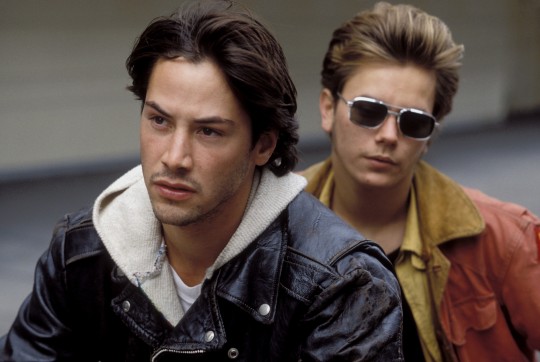
To claim that Mike and Scott are merely male hustlers is to undermine the totality of their characters and the scope of Van Sant’s work. In the course of the movie, viewers learn that Mike is the product of incest, and has narcolepsy which causes him to have episodes in which he loses control under the most minor pressures. Scott, on the other hand, is a spoiled rich kid, the son of the mayor, hanging around Portland’s streets to make a point to his father about his independence. However, both these men are lonely, void of the richness of relationships and connections that would stem from their families and loved ones. Furthermore, their inability for the most part to talk about this is only more wounding when examining the famous campfire scene. River Phoenix’s character, Mike tells Scotty, “I’d like to talk with you… I’d like to really talk with you.” This line for some reason has always stuck with me. The amount of vulnerability Mike has been suppressing has escalated to a boiling point. Mike wants to cut through the BS, and needs to tell Scott how he truly feels. Yet, sometimes friendship has its boundaries, and sometimes those boundaries cannot allow for the love that people need. This campfire scene is emblematic that friendship cannot always be enough. C.S. Lewis writes about how the ancients viewed brotherly friendship, philia, as the most praiseworthy of all forms of love, the cornerstone of our development of virtue. They weren’t completely right, of course. Lewis himself acknowledges this very notion, “Hence [if you will not misunderstand me] the exquisite arbitrariness and irresponsibility of this love. I have no duty to be anyone’s friend and no man in the world has a duty to be mine… Friendship is unnecessary, like philosopher, like art, like the universe itself. It has no survival value; rather it is one of those things which give value to survival.” While Lewis is not totally wrong, ultimately friendships are some of the strongest bonds we can have with people. Our inability to show that we love people through friendship is one of the sadder things about our instant-gratification society, and it is just as sad when Scott doesn’t really ever “want to talk” with Mike. Friendship, like love, is based on good communication, trust, and the ability to often put someone else’s feeling on the same level as your own.
1 note
·
View note
Text
Love is Courage
Rory Tell
Professor Ward – Love and Film
Love is about fighting
Back in October, I was fortunate enough to see Marriage Story at the Hamptons International Film Festival with my sister and my parents. I liked the movie a lot, as I think Noah Baumbach made a fascinating movie that is in every way about love, but specifically, how it’s only love that can make you truly mean. My favorite scene that is emblematic of what I am trying to describe is the epic fight scene between Adam Driver and Scarlet Johansson’s characters. It is clearly one of the most provocative scenes in the movie, and Baumbach understands this, as he allows his actors to bask in the notion of falling out of love. I am an easy mark for being emotional at movies, so the scene moved me, but not in ways I had expected. The scene spoke to me not in the form of marriage (I am too young and too single - LOL) but in how I treat and show love to the people that matter most in my life. When I looked inward and reflected, I realized that often I am most cruel to the people who I care about the most. It seems paradoxical in nature, for why should one be rude to the people who also care about them the most? Why do people do this, and why are people so capable of hurting the ones they love most? Adam Driver says some of the most despicable things, like: “Every morning I wake up I wish you were dead.” Yet, both of their remarks, however flawed they may be, show how deeply human the two are because they their thoughts are inspired by the tragedy of the two falling out of love. The statements weren’t made out of hate; on the contrary, they were born out of the inability to express their love that ultimately led to the demise of their marriage.
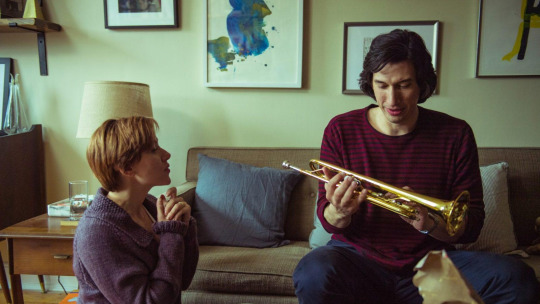
Frans De Waal in “Getting Along,” which we read earlier in the year, touches on topics of aggression in relationships. Waal describes anger as a constant figure in our daily lives, and in relationships that it is rarely pure. Waal notes how anger mixes with all sorts of other feelings, including love. As Waal comments, anger is all about context: “Whether aggression has healthy or unhealthy consequences for social relationships depends on how and when it is used, how far it is allowed to escalate, and what is at stake. It also depends on the power balance: if aggression always comes from one side, and only serves the interests of one party, it obviously is not much of a constructive mechanism for the other party. It is a matter of dosage and context.” In Blue Valentine Derek Cianfrance observes the physical and mental exhaustion that has overcome the characters played by Ryan Gosling and Michelle Williams. For Cianfrance, the disillusion of the pair’s love comes down to the inner defeat the couple feels and their overwhelming exhaustion from hope. From this, we are aware of the central disconnect between the two characters from which their arguments emanate. As Roger Ebert put best, “Blue Valentine moves between past and present as if trying to remember what went wrong… Dean thinks marriage is the station. Cindy thought it was the train.” Ebert gets at an essential point of what makes their tragic relationship that much more devastating since we see how the two were in love at one point. Dean and Cindy are both immature in different ways, they both carry emotional pillars from their childhood, which carries over into the dangerous way they navigate relationships in later life. The final gut punch while landing on an emotional note also recognizes the inevitability of this troubled and toxic relationship. Blue Valentine, then, is less a warning against the very idea of love, but instead a reflection of how unstable and misguided relationships are often just not built to last. In the case of Blue Valentine, a healthy sense of fighting and aggression was about all that kept the two together, which is not the basis for a healthy relationship. There fighting is not due to an inability to express their love, instead it is a crutch that they use to hold onto their fledging relationship. This sense of heartbreak and anger though that Gosling and Williams feel is not just happening in their mind. As Tiffany Field points out in her research, this anger and aggression is working through a chemical release in our brain: “Involvement of the cingulate cortex is consistent with brain activity associated with rejection and the mixed emotional state of sadness, anger and anxiety, suggesting that rejection may be a key factor in romantic breakups”
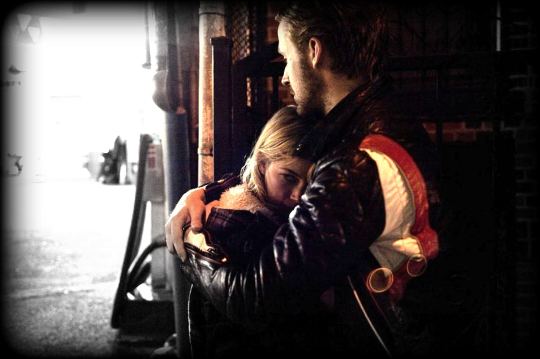
This then brings me full circle to wondering why we are so aggressive with the ones we love the most, and I think it is because there is so much at stake. While friends are important to us, ultimately, we are not reliant on our close friends. When we are tired of hanging out with friends, which inevitably happens to everyone, we can choose to leave and go hang out with other people or enjoy time alone. With the people who are closest to us in life, like our lovers and family, a single yet most important belier constantly consumes one’s thoughts…that we cannot escape them. Paradoxically, love makes us feel safe enough to be horrible. If we were intemperate with our friends, they would simply stop talking to us eventually. However, love lends us the safety to reveal the anxious nature of people’s emotional side. So is aggression a key part of all relationships? In the case of Marriage Story and Blue Valentine I believe the directors describes the fundamental nature of how fighting works in relationships to different ends. For Baumbach, aggression is rooted in the tragic nature of his characters falling out of love. For Cianfrance, aggression is entrenched in the fact that the two never took the time to get to truly know each other in the first place. We are hurtful sometimes to the ones we love the most in the end because we hope they see our anger as a form of love, not as a form of hate. Anger is not all right, but it is a conduit for expressing a state of vulnerability that one would otherwise not be able to display.
0 notes
Text
Love is Courage
Rory Tell
Professor Ward – Love and Film
Love is Petty and Weird
One of my favorite shows of the year, and one that wrestles with the philosophy of love quite a bit is Fleabag. The hot priest… yes, he is hot, says during a wedding speech, “Love is awful. It’s awful. It’s painful. It’s frightening. It makes you doubt yourself, judge yourself, distance yourself from the other people in your life. It makes you selfish. It makes you creepy, makes you obsessed with your hair, makes you cruel, makes you say and do things you never thought you would do. It’s all any of us want, and its hell when we get there. So, no wonder it’s something we don’t want to do on our own.” I think the priest gets at an elemental, but rarely talked about property of love. When it comes to romance and love, people become very weird. While most guys won’t admit to such things, I will be the first to say I have never spent more time fidgeting with my hair and changing in and out of clothes then when I have had a date. I have never considered the posture of my body, nor chose my words more carefully then when I am with someone I like. Romance turns us into some sort of other being in which all our insecurities and vulnerabilities are brought to the forefront. While the Hollywood complex will have one convinced that romance and love stories are these incredibly sappy and beautiful events, Paul Thomas Anderson’s Phantom Thread does not care to hark on such an idealized version of love. Anderson recognizes that fundamentally all humans are flawed and self-absorbed, and they certainly aren’t as kind and pure as Tom Hanks in You’ve Got Mail. Paul Thomas Anderson’s Phantom Thread is mostly about the hell-bent ways in which couples snicker at such naiveté of the classical aspirational ideas of romantic love.
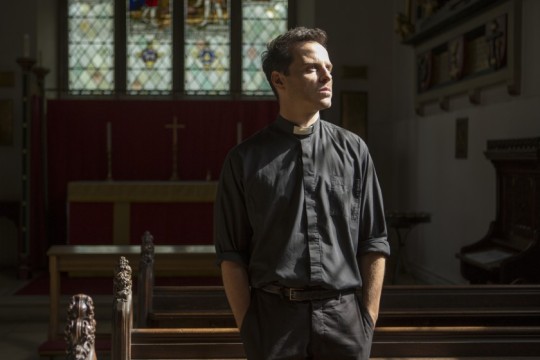
It turns out though, through Daniel Day-Lewis and Vicky Krieps, that all this time it was in fact possible to make a romantic movie about lovers that hinges on the quite appalling nature of their mutual behavior. Yet, while Anderson takes this notion literally to the very end of the spectrum, there is an underlying truth that he discovers by examining an atypical relationship. People are in fact petty and act in their own self-interest in a lot of ways. To love Reynolds, who Daniel Day-Lewis plays, is to deal with the force of both his misanthropy and his disdain for change. During the course of the film, Alma agonizingly works through breakfast quarrels, dinner spats, and occasional bratty outbursts. Alma soon finds ways to stand up to her lover. She does so with kindness, yes, but with a kindness that’s rooted in cruelty. As Manuel Betancourt describes, “Alma dangles the power she has over Reynolds not to scold or abuse him but to show him just how much she loves him. To love a man, in the world of Phantom Thread, is to know how and when to weaken him, how to help him settle down a bit, how to defang him long enough for him to be thankful you’re there to build him back up.” Where I disagree with Betancourt is with his notion that the dramatic part of the film in any way deals with fashion. In fact, I believe food is a more apt comparison for the couples’ psychotic relationship.
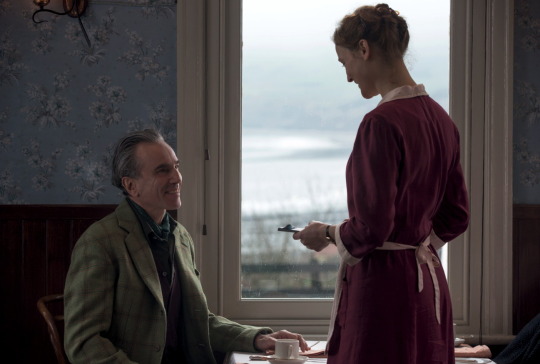
As Helen Rosner of the New Yorker writes, “What’s less often depicted—but which makes up the very foundation of “Phantom Thread” is culinary language—is the kitchen’s ever-present sinister side. Taking on the responsibility of feeding someone, or affecting the way he feeds himself, can be warfare, a game of power and control. Anderson’s film is about the entwined ways in which people care for and harm one another, the navigation of competing desires and appetites, which all relationships are fueled by.” While Rosner is certainly stretching out the metaphor, she does strike the fundamental nature of their give and take relationship, while noting the harmfulness that they are causing each other. Anderson himself seeks to throw away the bland image of romance as mere bliss. The film is a rom-com that shows a couple whose default setting makes room for petty comments and constantly rude, but witty repertoire. This movie is in fact a rom-com, not in the typical framework for which society at large would recognize it as being one, but all the same, Phantom Thread is hilarious. Sheila O’Malley, author of “Love, After a Fashion,” echoes a similar sentiment: “Phantom Thread maintains its sense of humor (the film is very funny), its suspicion of shallow catharses, and its respect for the individualism of the characters. This is due to the fact that Phantom Thread is audacious in how its conceptualized romance as a game of push and pull between lovers.” Furthermore, by film’s end it become evident to the audience that Reynolds and Alma have found some corresponding need and understanding within each other. Their bond works in that it’s odd and makes a bizarre kind of sense only available to them.

0 notes
Text
Love is Courage
Rory Tell Professor Ward –
Love and Film
Love is all about Risk
Asking someone out can be a really scary thing. It sounds silly, when you ponder it aloud. How hard is it to go up to someone and say, “Hey, I like you, do you want to go out?” But love is not easy, and nor is opening up to someone else. In fact, I raise this example as it relates back to Alain Badiou in the earlier parts of the semester. Badiou thinks that the element of risk that characterizes love is most marked in the declaration, for in that declaration “huge risks are involved that are dependent on language itself.” In making the declaration, there is always the possibility that one will fail, or as Badiou believes is the worst option, the other person will flee from the event in horror. Thus, by attempting to put a name on one’s love, a person makes themselves totally vulnerable to everyone and risks losing everything. Is this a bad thing though? Love is not easy, because when you find it, it is one of the most rewarding fundamental human experiences. Being brave is about letting go of fear and choosing love, even with all the risks involved, even if it ends with embarrassment or heartbreak. It is the walls that we create and put around ourselves that stop us from being courageous and, thus, accessing the true wealth and breadth of the emotional experiences of love. The barriers we put up protect ourselves from moments of pain may rob us from any moments of joy. We should not close ourselves off to vulnerability and disappointment; instead, we need to take a chance and put our heart in the hands of someone else. That is why love is one of life’s riskiest things, because it is so incredibly hard. However, we do it anyway over and over because as humans, we are willing to deal with risk and rejection, because we need love.

Wings of Desire is perhaps the clearest example of the notion of love as risk. While angels have been observing humanity since the dawn of time, there are still many things they don’t understand. They can guess what feelings are, but they cannot experience these emotions themselves. As Wim Wenders himself acknowledges, “All these things escape the angels. They are pure consciousness, fuller and more comprehending than mankind but also poorer. The physical and sensual world is reserved for human beings. It is the privilege of mortality, and death is its price.” To me, this is an extremely fascinating idea. For all my life I have been afraid of death. I think at least once a week, for a fleeting moment, I contemplate about how I am going to eventually die, and then what should I do while I am living. This sense of mortality is human’s greatness weakness, but as Wenders shows in his film, it is by far our biggest strength. The finite grants importance to the everyday minutiae of life. Eventually Ganz decides, “I’m taking the plunge,” as he tells other angels. He will descend into time, disease, pain, and death, because at the same time he can touch, smell, and be a part of things. He can fall in love and feel all the heartbreak and joy that encompasses such feelings if he so chooses. In the reading for the week, John P. Reeder gets at the heart of ideas about the importance of love in transcending human boundaries. Reeder writes, “Despite the implausibility of some traditional religious ideas, James thinks that agents are faced with a "’forced option’ between an evil world and a dedication to expressive virtue, joined with the hope that one ‘participates in an on-going reality that is larger, more benign, and finally more enduring and powerful than anything they see around them.’ Such hope does not rely on knowledge, Yearley adds, but rests on love, which ‘alone can move a person into contact with something fully beyond the self.’” Reeder examines how love allows people to think beyond their own being, in care of another.
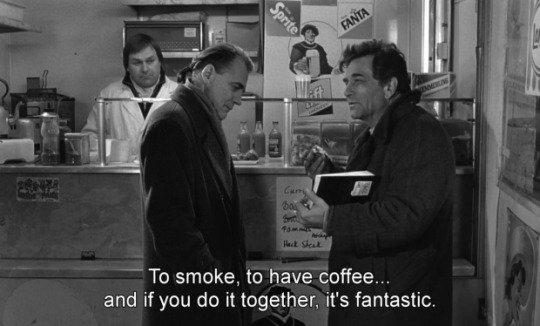
This idea of choosing love and life in the end is ultimately quite a simple decision for Bruno. I think Wenders summarizes this choice in an amazing fashion, privileging not only his decision in the macro/existentialist sense, but also in the idea of everyday choices and struggles faced by humans. All that Ganz desires is summed up in the early dawn at an outdoor coffee stand when Peter Falk tells him unknowingly: “To smoke and have coffee, and if you do it together, it’s fantastic. To draw, and when your hands are cold you rub them together, it’s fantastic.” Wenders films can create an atmosphere of sadness and isolation, yet I think of Wings of Desire as a film about yearning, yearning for the choice to live within time’s constraints, and the beauty of life’s everyday moments from coffee in the morning, to expressing one’s own vulnerabilities. For Wenders, all parts of life take immense risk, whether you’re an angel or a human being.
0 notes
Text
Love is Courage
Rory Tell
Professor Ward – Love and Film
Love is Choice
Whenever I think of AI and love, my default as a 21st century human is to think about Black Mirror. When looking at Spike Jonze’s Her, I think of a specific favorite of mine within the Black Mirror catalogue. The episode “Be Right Back” is in many ways the most beautiful and haunting story of a postmodern romance. Most of the emotional Black Mirror episodes examine something about life that we as humans are either desperately afraid to lose or desperately trying to recapture, and those ideas are also intertwined with each other. “Be Right Back” though doesn’t frame those questions as a future consideration, as a virtual afterlife; instead, it is about the present, the here and the now. It asks us to consider on a fundamental level if we would bring back the person, we loved who was ripped away from us. This is a timeless question. It asks us whether a facsimile of a person could ever be good enough to replicate one’s love? Even more haunting though, it forces us to consider if the answer to that question is no, whether people would still be able to cast their loved one aside if the tech was there. And this is not just presumptuous, as Susan Schneider notes, “This is not mere speculation. The Future of Humanity Institute at Oxford University has released a report on the technological requirements for uploading a mind to a machine. A Defense Department agency has funded a program, Synapse, that is trying to develop a computer that resembles a brain in form and function.” Putting consciousness within an AI has been a topic of conversation for as long as I have lived. It has been my stance that the capacity to be conscious is specific to human beings, so that even the smartest AI robots would be devoid of the conscious experience. If this view were correct, then a relationship between a human being and a program like AI Ash, however intelligent he might be, would be hopelessly one-sided.
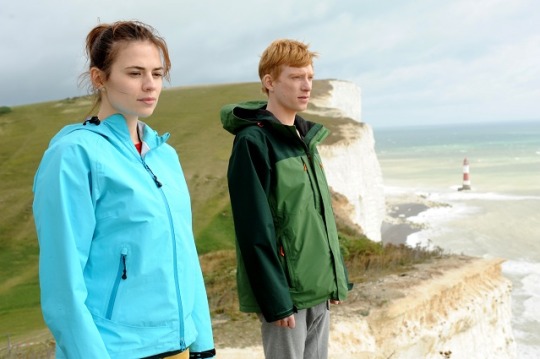
To me, the answer to all these extremely tough questions can be boiled down to one scene in the episode. At one-point Martha, played by Hayley Atwell, tells her once dead, but now AI husband, Ash, played by Doomhnall Gleeson, to leave the house after an argument. Ash listens to Martha and does his responsibility as an AI, deciding to leave the house per her instructions. Martha is visibly upset that the AI appears to leave, as no human would go without a fight or at least try to settle the argument at hand. Instead the AI is void of its ability to choose, it has no free will. Robbing someone of that choice, the ability to decide whom one loves is not a theory I prescribe to. This is my essential problem with AI, the understanding of free will and the ability to choose. With respect to love, there is little that is more important to me than the idea that someone chooses me, and I choose them. It is a simple notion, but it means the world to me, and I am sure a lot of others as well. Now I understand arranged marriages in some cultures function, but in my own worldview, reciprocated love is where my fundamental understanding of choice and love are derived.
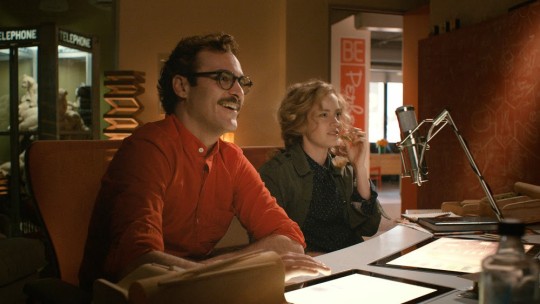
Personally, while the best Black Mirror episodes are the ones that go beyond the tech itself, and examine the human condition, I am not always sure I could say the same for Her that is “so entranced with his central conceit that he [Jonze] can barely move beyond it.” Yet, I think Her is surprisingly at its best and most dazzling when it chooses to focus on the human elements that make up the story. While the first rush of new love feels as real and euphoric as any traditional relationship, Theodore and his AI girlfriend slowly sours into disaffection and jealousy with just as much familiarity. Yet, where I think Jonze’s film reaches a more captivating lens in which to examine love is in the way that, “some will see Her as an indictment of what we’ve done to ourselves by digitizing human interaction. Others will choose instead to focus on the hopeful concept that every time we love, no matter how we do it, it helps change the person we are. There’s more than that though, as Jonze urges us to revise the one constant in all our relationships: ourselves.” I think this is a fascinating concept to think of in the digital age. The Internet warps so much of our lives that it can be tough to take a step back and reflect on oneself. That is why the tragedy in Her is looking at Theodore and seeing someone who will continue to blindly follow the impulse of the heart, regardless of how it will result in both pain and sadness. In fact, tech Jonze arguing only further facilitates in more complex ways the potential for romantic irrationality if we do not step back and consider what we as humans and as individuals want. In fact the oddest part of Her that made it all the more relevant to the conversation in our own class was the mentioning of “alarmist news stories about the problems of Japanese teenagers who have become entirely apathetic towards sex and are unknowingly diminishing the government tax base.” Thus, why I agree that sometimes Jonze’s movie can get caught up with the inherent conceit of the film, ultimately to me Her is about the choices we make as humans in regards to love and furthermore, how couples talk and justify their actions. This is what I think makes Her a more timeless movie than I originally gave credit.
0 notes
Text
Love is Courage
Rory Tell
Professor Ward – Love and Film
Love is Duration

Anyone who gets to know me decently well, or is in a film class with me for a semester knows that I am huge Richard Linklater fan. Inevitably at some point, after I have referenced the Before Trilogy multiple times, someone will ask me why those movies are my favorite. Ironically, I don’t have an answer that completely satisfies me. Sometimes when you love something so much, especially a movie, much like love, it is this indescribable feeling one gathers that is impossible to articulate. For art, much like the intangible idea of love, something creates these intense emotions. However, if I am trying to pin down the reason for why I truly love the Before Trilogy, there are a lot of reasons. This is not solely because there are three different movies that all carry special places in my heart, but as I have grown, so has my love for these movies evolved as well. Movies do not change, but as I have learned from my lifetime, their viewers very much do. Michael Koresky gets at the heart of how the Before Trilogy develops for a person in time: “Romantic love is poignant because it is an infinite feeling that exists in a finite frame. And Richard Linklater’s Before Trilogy is the most romantic and profound of love stories because it imbues love with the weight of time. In these three films, the temporal limits constantly imposed on love make every moment urgent, from the courtship of dating to the maturity of a long and meaningful relationship.” The first time I had watched any of these movies was when I was 13, when my mom showed me Before Sunrise. Initially as an adolescent, “Jesse” represented everything I dreamed of: good looking, vulnerable, and a wry intelligence to match the banter of any Sorkin character. When I saw it again, mind you only 4 years later, I was now officially in love with the idea of being in love, and I saw Jesse and Celine as the perfect couple, the romantic ideal. Before Sunrise depicted this beautifully smart, self-conscious, vulnerable, sometimes philosophical, but mostly endearing pair. As I have grown older and continue to watch Before Sunrise, my thoughts on the film are constantly evolving. I mention this notion of our feelings on films developing to make the point that this is mirroring how we love people. Badiou, as referenced earlier in the semester, talks about how love takes on a temporal dimension. How love is shaped over time is central to understanding Richard Linklater’s Before Trilogy.
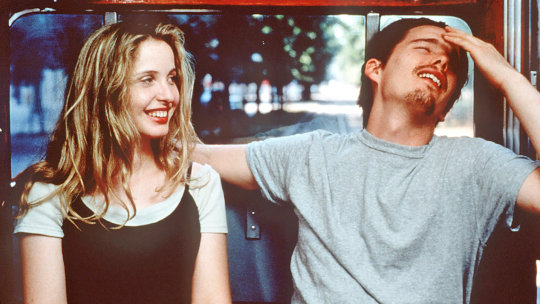
The Before Trilogy gains its unique emotional force from being a love story in knowing engagement with both the fantasies and the realities of romance. As one ages with time and returns to these movies, Linklater is asking his text to be viewed reflexively. Watching his movies entails a very particular form of viewer participation, as Celine and Jesse openly wrestle with the transience of love, the deceptions of time, and the specter of mortality. Viewers are obliged to do so as well, in ways that relate to their own lives. Linklater doesn’t just tell stories; instead, he wants the viewers to feel time from his first feature in Slacker, to the Before Trilogy, and especially in Boyhood. His films demonstrate that the cinematic image is not a photographic record of a moment in place, but the passage of a very particular pathway of time or space, never to be recaptured. Dennis Lim aptly writes how this idea functions within the Before Trilogy: “What separates these three distinct moments in the lives of Jesse and Celine are not mere edits, but unfakable real-time ellipses that carry a full durational weight for creators and characters and audiences alike. Each new film demands to be viewed through a palimpsest of accumulated experience. In the scheme of the Before movies, time operates both as a special effect and a reality principle.” I think it may be difficult to discern how time functions in a Linklater film at first viewing, because as an audience, we are inherently preoccupied with worrying how Celine and Jesse will work at the end of every movie. I think on a re-watch, what is so rewarding, is that you realize it’s not about wondering where Celine or Jesse will end up. Instead, the film is about remembering what it was like to go through different stages of love. It’s about enjoying the smaller moments in life and in the film, where it feels like time is endless.
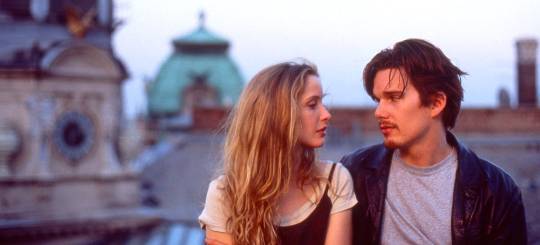
With respect to how love evolves for Linklater, I think over time with relationships, cognition becomes relatively more important than emotion, and close relationships are more likely to be based on companionate love. This is love that is based on friendship, mutual attraction, and a concern for each other’s welfare. This does not mean that enduring love is less strong, rather, it may sometimes have a different underlying structure than initial love based more on passion. This type of evolving companionate love relates to the reading of the week, Carla Kaplan’s The Erotics of Talk, in specific her chapter named “That Oldest Human Longing” in their Eyes Were Watching God. Kaplan, in her revisionist reading of Hurston’s text, comes to the conclusion that the value of the erotics of talk lies in its dialogical emphasis on the relationship between speaker and listener, that which evolves between Janie and Pheoby. Kaplan writes how the ideal listener is so tough to come by, but as love evolves, one is less attracted to physical notions of love, and more to the companionate versions of love. She shows this by illustrating how time has evolved in how Janie loves. Kaplan notes how Janie, from the very moment she sees the blossoming of a pear tree, is in search of an “orgasm,” a revelation of the mind. While Janie originally believes this revelation to come in the form of marriage, over the course of time she understands this to be a false hope. As Kaplan points out, “The meaning of Janie's pear tree "revelation," it turns out, is not marriage or a husband or sex, but talk itself, the experience of conversation, the act of storytelling and self-narration. It is only in telling her story to Pheoby that Janie finally is able to satisfy that oldest human longing-self-revelation" Only through time and experience was Janie able to locate what she thought was important in love. Thus, going back to the Before Trilogy, it is clear relationships change, and Jesse and Celine mature in varying ways throughout the three movies. Each film is a window onto a stage of life, sharply attuned to the possibilities and disappointments of one’s evolving love. Taken together, they have become something much larger and more radical, their relationship is an ongoing collective experiment in embodying the passage of time.
1 note
·
View note
Text
Love is Courage
Rory Tell
Professor Ward – Love and Film
Love is about expression
One of my biggest fears, and I think this resonates with other people, is the idea of being misunderstood. I feel often as a society we take for granted how brave you need to be to try to show the world who you are every day. We put ourselves out there, and hope people see us for who we are. But how do we show people who we are, how do we know that they actually understand who we are, and furthermore, how is one comfortable being who they are? Immanuel Kant said that rational human beings should be treated as an end in themselves, and not as a means to something else. Kant is getting at the idea that we all have inherent value in ourselves. When I walk out of my door and go to classes, the same fear constantly arises. Call it my self-conscious acting up, or my insecurity, but I believe it is a fundamental human emotion to want to be seen and heard in the way you understand yourself to be. Now, by pairing this idea with how love works, you can imagine why it is so difficult for humans to admit to each other their true emotions and feelings. In making the declaration of love to another, there is always the possibility that someone will say no, and to that end it is more than just a rejection of one’s love, but to the person rejected, it is a fundamental rejection of their identity in a sense. Hence, by naming the void that structures the question of love between two people, one becomes totally vulnerable with respect to their love and identity to the other, and risks losing everything. However, at the same time, I recognize my own privilege in this matter. I am a white heterosexual male who has been afforded advantageous circumstances to not to worry about certain concerns that other groups of people have to deal with on a daily basis.
In this case of Pariah (2011) the question of identity and modes of expression become of maximum importance. Dee Rees’s film is a queer coming-of-age tale and an intimately told movie, stripped down to the essentials of attempting to understand one’s identity in the world. Pariah is not only a comprehensive representation of different communities within Brooklyn, but also a vision of private lives with a conspicuous public component; a sense of community is used to explore one’s identity. Yet, for Alike her sexuality is not a point of conflict with her, rather her real struggle is how to outwardly express her desires for who she wants to be. This is where I feel like Dee Rees is onto something truly special in attempting to connect with different audiences. Whether you can see yourself in Alike is not as important as it is to recognize the struggle that everyone goes through in attempting to show themselves to the world. Alike, similar to her peers, channels her identity through various fashion styles and different forms of pop culture. As Ina Diane Archer of Film Comment writes, “Chameleonlike, she adopts different garb throughout the film, seeking the style and sounds that will represent her with the same authenticity as her poetry. With Laura, who prefers hip-hop, she’s a boyish “OG,” later she mirrors Bina’s multicultural, ethnic Afro-punk accessories, and otherwise resists being straitjacketed by her mother’s wishful, infantilizing pastel-sweater suggestions.” Rees seems to suggest that Alike is slowly transforming as she comes into her own, slowly establishing herself in a community of those not just bound by sexual identity, but by shared pain and hope. This is in accordance with what Aliyyah Abdur-Rahman mentions in our reading for the week: “The black queer attachments, affective dispositions, political aspirations, and representational practices that punctuate the awful now with the joys and possibilities of the beyond (of alternate worlds and ways) are what I theorize in this article as the black ecstatic.” In this way Rees is wrangling with the ideas for a better future among the African community as they come to understand the shared pain of the past and use this pain as a form of expression for future illustration of love. Rees’s film contains a universal compassion that comments on the emotional nature of first love, in common with many other coming of age stories. Yet what makes Pariah different and unique is how it balances the awakening of adolescent sexuality with the excitement of not just discovering yourself, but with finding those kindred spirits with whom one can fully express their inner emotions.
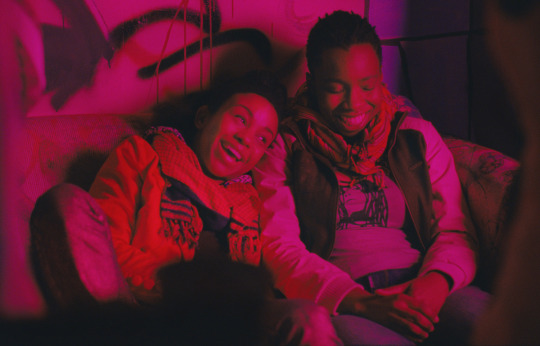
Furthermore, Bradford Young’s cinematography supports this notion of shared cultural identity as a means of expressing one’s individuality. There are few working cinematographers, if any at all, that have as special a touch for capturing human emotion through natural light than Bradford Young. From the first shot of the film his work is apparent as the characters are shot in raw natural light, immersing Alike and the fellow people in the club with shades of red and purple, highlighting beautiful features in his characters faces. Color is significant in the film’s aesthetic, and in Bradford Young’s cinematography at large. Although the setting for the film is distinct, the action seems to exist outside of a particular physical locale. Young shoots characters in tight close-ups, large and in sharp focus while background lights melt and form patterns on the characters faces. It is of no coincidence that a film shot in Brooklyn about an African-American community would be in concert with Spike Lee’s seminal text about the African-American identity in Do The Right Thing. As Ella Taylor astutely corroborates, “Meanwhile, the striking palette, shot in Brooklyn in gorgeous deep reds and blues by the talented cinematographer Bradford Young, surely draws inspiration from Lee's 1989 Do the Right Thing.” While the two stories vary in Scope, both Dee Rees and Bradford Young are drawing on inspiration from Lee’s text in that one’s identity and love can only be expressed with the shared knowledge of a person’s history. Self-expression is not easy, and in the form of love, sometimes it can be hurtful, but in that pain two people can truly learn how to love. That is why self-expression is such a crucial form of love.
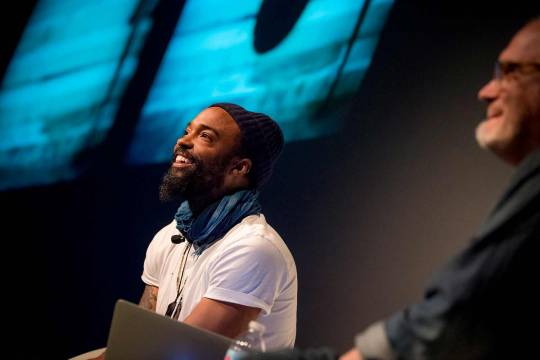
0 notes
Text
Love is Courage
Rory Tell
Professor Ward – Love and Film
Love is for One’s Self
“People always talk about how love is this totally unselfish, giving thing, but if you think about it, there’s nothing more selfish.” Jesse, Ethan Hawke’s character, says this line in perhaps my favorite movie of all time, Richard Linklater’s Before Sunrise (1995). I think about this remark often, especially when pondering the concept of love. One is always brought up to believe that in the traditional sense, love is this beautiful emotion that one feels when they can truly put their significant other’s life above one’s self. I would say this is the most common summation that people will tell you when asked, “What’s love?” Personally, I struggle with this notion. I mean it sounds beautiful, but at the end of the day, I tend to believe that humans always interact with themselves as their primary interest. Call it nihilism, a lack of faith in the notion of true altruism. However, be it as it may, I actually do not think that it is a bad thing at all. Think about what people say concerning their experiences in relationships. Every parent says to their child that it is important to have different relationships, so you get to understand yourself better and what it feels like to have your heart broken. That is an inherently selfish act. The act of having these relationships in middle school, high school, and college, when most are doomed to fail, is in essence so that one can come to grips with what they want in a lifelong partner. I have friends who are in relationships, and I know that they are not going to last (and I think they too would readily admit that as well, given confidentially - LOL). Ultimately, who are relationships for in essence (I am a culprit of this too)? So much of love for one’s self is about understanding what one likes and what one wants. Therefore, I go back to Jesse’s statement and posit myself that is it really bad, “that love is selfish?” I’m young and won’t pretend to fully comprehend or know the right answer, however, I think that recognizing that being selfish about love is not a bad thing is a good start.
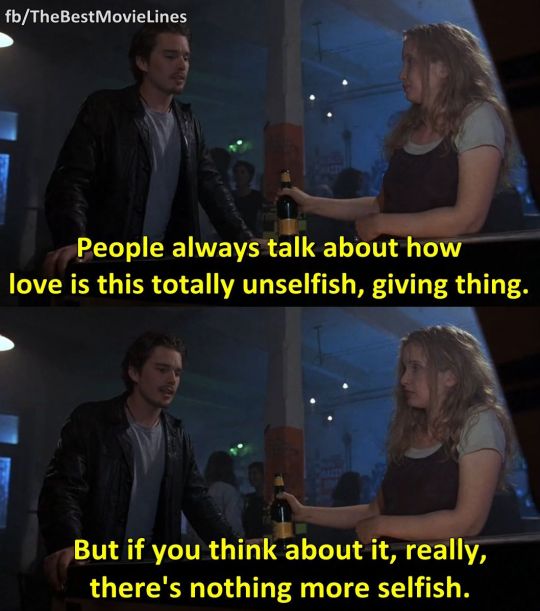
Looking at Luca Guadagnino’s Call Me by Your Name (2017), we can see how a film wrestles with the idea of love as a sort of discovery of one’s self. Having seen this film maybe seven times or so, it is interesting to reflect how my perception of the movie has changed during my many viewing experiences. The first time, I was overcome with emotion through the sensual and loving nature of Elio and Oliver’s relationship. Yet, when watching the film over and over again, it becomes noticeable how Guadagnino’s most effective method is by setting an endpoint to the journey from the very beginning. The understanding of the haunting sensation that their relationship will not last offers an interesting reading into exactly what the characters gain from their summer fling. While a feeling of melancholy pervades throughout the movie, there is something beautiful, yet tragic, in how Guadagnino uses long takes and periods of silence to let the viewer succumb to the beauty of the Italian countryside. As the story is seen through Elio’s eyes, the viewers are growing alongside him and his erotic reveries and yearnings. Less about wish fulfillment, and more about the realities of experiencing personal growth through relationships, this film has more of an emotional impact on me with every screening.
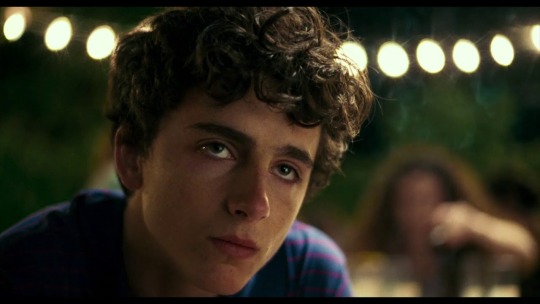
This notion is further examined in Carla Kaplan’s “That Oldest Human Longing” in Their Eyes Were Watching God. If one does any quick research on Hurston’s book, most places will write about how Janie’s journey is about her gaining her own voice and identity. Yet, Kaplan argues in favor of a different approach to understanding Janie’s character. Arguing that Janie has in fact had a voice throughout the entirety of her own story, it was the lack of an outlet, a listener that had evaded her. For Janie, Pheoby is that perfect listener, the outlet for her revelation, “the hungry listener,” “the kissing bee” as Hurston put it. I think this is an apt comparison for Elio and Oliver’s relationship. As an audience we like to think Elio grows during the time that he spends with Oliver as we the audience too learn about their relationship. In concert with what I wrote above and Kaplan’s theorizing, in fact Elio is an evolved person, and to him, Oliver is the outlet for letting him find the revelations that had been stirring inside him. I think the best example of this is through Guadagnino’s use of the Psychedelic Furs’ “Love My Way.” The first time we hear this song played, it’s at an outdoor disco where the viewers see through Elio’s eyes Oliver’s looseness, as expressed by his freedom while dancing. As A.A Dowd said, “By the time Oliver is dancing to “Love My Way” again, the ephemerality of his life-changing presence has really sunk in. There is no such thing as an endless summer.” The summer may be over for Elio and the viewers, but that doesn’t mean Elio has not learned through heartbreak, as seen by the final shot of the film.
1 note
·
View note
Text
Love is Courage
Rory Tell
Professor Ward – Love and Film
Love is a Universal Emotion
I vividly remember the first time I watched Barry Jenkins’s If Beale Street Could Talk (2018). I saw it at my local Bow Tie Cinema in Montclair, New Jersey with my parents and one of my sisters. Having enjoyed Moonlight (2016), I was ecstatic to see his next film in the same theatre where I first saw the trailer. At a time when people are hesitant to go to the theatre, and instead wait for movies to stream, Jenkins’s films demand the big screen. His ability to capture the beauty and sensuality of the world is a truly heart-rending experience, and this is no different with his second feature. With the help of Nicholas Britell’s melodic soundtrack, he swooned me into a world embodied by the love of a black couple, and a reality that bridges the gap of human experience. While I have always preferred the long-take naturalistic filmmakers like Cuarón, Edward Yang, and Richard Linklater, there is something distinctive about the ways Jenkins uses his characters’ faces to invoke a universal emotion. I appreciate how that very first shot of the two lovers, Fonny and Tish, set the stage for the rest of the movie. While the camera focuses on the love between the couple, Jenkins looks to show how universal the emotion of love is represented. Yet, as Odie Henderson of the Roger Ebert Review noted, Jenkins “never let(s) the reader fall too deeply into the starry-eyed ether; the barbed scorpion’s tail of harsh reality remains ever-present, waiting to strike at any moment and break the spell. This realism is rendered in such matter-of-fact fashion that it becomes smoothly woven into the narrative without artifice.”
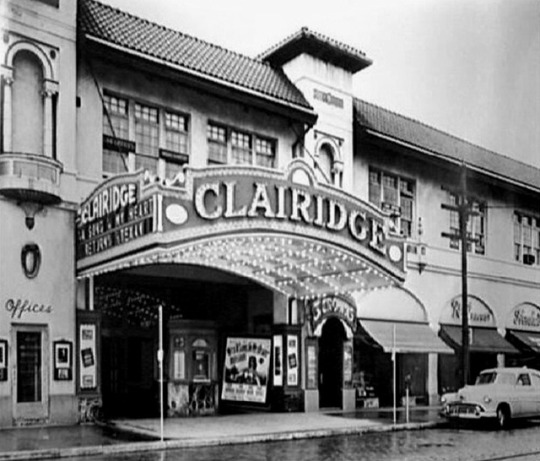
This notion is present in the first scene of the movie as Fonny and Tish move through the screen with their inverse blue and yellow outfits matching the fall weather of Central Park. Yet while there is a deep love within them, they are never far away from the harsh realities of their situation. Jenkins balances this concept to a tee as he avoids the hate that pervades society, and instead, focuses on the beauty of the human connection. I agree wholeheartedly with Manohla Dargis of the New York Times, and how she summarizes what Jenkins is attempting: “In “Beale Street, “Jenkins is inviting you to look deeply at these men and women to see how they look to, and at, each other. He does this primarily through an expressionist visual style that can make words superfluous. The ethereal vision of Fonny wreathed in smoke isn’t only striking; it exalts this moment and communicates its evanesce, turning emotion and thought into image.” Yet, I bring this passage up to talk about how Jenkins wrestles with the notion of the universality of love from the very first scene of the movie. The theme of blue and gold that jackets the characters’ clothes when they first profess their love rematerializes later in the film in the jail scene Even through their best moments and their worst moments, Jenkins illustrates how love persists.

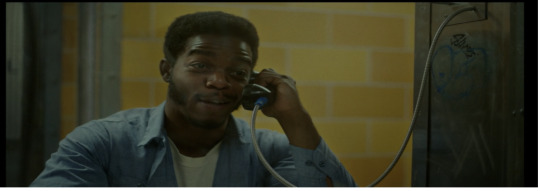
The thing that makes Jenkins such a special filmmaker is that he is able to personalize love, something to be a universal experience. Yet, is love a universal emotion? While I think it is, that doesn’t mean that everybody’s love is the same. In fact, with respect to the work of James Baldwin, he expands on the idea of love as it takes on a more social and political perspective as illustrated by Christopher Freeburg in “Baldwin and the Occasion of Love.” One can now view how in most white on-screen romances, the love between a man and a woman, and its tests, tends to be framed in personal terms, as a matter of individual will, a form of courage we have talked about. Yet, when looking at a movie like If Beale Street Could Talk, through the eyes of James Baldwin and Barry Jenkins, we can see for people of a certain race or color, however unfairly it is, a whole new form of love. They are never simply two people in love, rather they are battling the power of institutions and a society who will not let them love. As Freeburg writes, “Facing these dilemmas like racism courageously, he suggests, may upend the way people think about the world, thereby exposing them to feelings of inner ‘chaos.’ From this perspective, when characters find and profess love, it becomes an escape from difficult social conflicts and reinforces fantastical abstractions, normative social categories, and social inequality.” This doesn’t mean that certain people don’t feel love, but their love is inherently different because of the unfair constructs imposed by society. Immediately after viewing the film, I felt the emotional toll it took on me. I could barely talk afterwards, as I needed time to process and reflect on the movie. As humans, we are conditioned to our own understanding of society, and as such, we often neglect to recognize the experiences of others. It was clear to me how unfair it was that one’s love could not match another just because of race. Jenkins was able to project that his protagonists “are never simply two people in love, but also an affront to the power of the white world.” While love may be universal for humanity at large, everyone’s love is different with regards to the uniqueness of love and thus, love deserves to be treated as such.
0 notes
Text
Love is Courage
Rory Tell
Professor Ward – Love and Film
Love has to evolve
Heartbreak is one of the toughest emotions humans can handle. In fact, it is not just happening in one’s head, as I learned over the course of the semester. In fact, there are legitimate ways in which your body feels weak when one’s heart is broken. But as with any other difficult point in life, it is how your respond to adversity that shows the character of a person. As cliché of a line as it is, it holds extreme truth, especially in regard to the principle of love. Heartbreak can drown a person in their own emotions, or it can teach someone an important lesson for future relationships. Since I first saw Chungking Express (1994), I have been obsessed with Wong Kar-wai and the freedom in which he juxtaposes narrative symmetry in his stories. When I think of the way in which humans process consciousness, I am actually much more in line with how Wong tells stories. His movies are not linear, rather they take on a circular nature. When I think about the human processing of feelings, we often tie these ideas not to the present, but instead correlate such events with tales of our past, or anticipation for what’s to come. Yet, what I struggle with, and what does not resonate with me in 2046 (2004) is Chow’s detachment to those who try to connect with him throughout the movie. I am more inclined to agree with the notion that our consciousness is using information from the past, present, and future, not to drown us in our fear of falling out of love, but rather to help us evolve in how we think about love.
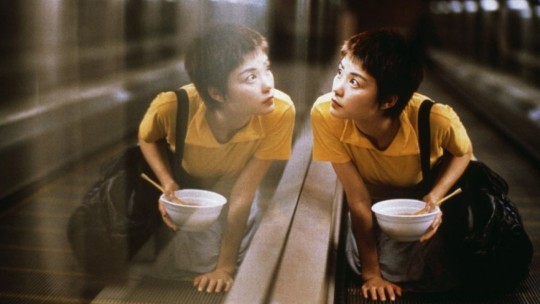
Though given the knowledge of its connection to In the Mood for Love (2000) there is almost an eternal sadness that hangs over the entirety of the film. It is interesting to compare Wong’s trilogy on love to Linklater’s Before Trilogy. While both deal with the concept of love, I would argue that Linklater focuses on the various stages of love while Wong is interested in the various forms that love holds over people. In 2046 love and longing play a dangerous role, clouding over every decision Chow makes. Chow’s almost unhealthy desire concerning a past relationship drives him to feel detached to those who try to relate to him in the present. Kar-Wai comments on this emotion in an interview noting that “I think love will not be lost until you forget about it…Otherwise it’s always in your memories. And if you have strong memories, it will be permanent.” For his protagonist, Chow, it is clear that his character is enveloped by a connection with a former lover, and his almost unhealthy obsession for reckoning with that loss of affection. I think the reason I have always had a tough time loving this film, more on a theoretical level, than on a technical or a narrative level, is that I have a tough time with how Kar-wai reckons with how love works over time. While I would like to believe that one learns and grows from heartbreak, Wong focuses on the emotional scars it bears on all that love touches. I believe functionally when discussing the topic of love. As Charles Lindholm notes, “romantic love varies according to cultural constraints.” I believe there is a cultural difference in what Wong Kar-wai, and I privilege about love. Kar-Wai’s protagonist is emotionally scarred and trapped in the thought of his past lovers, whereas I fundamentally believe as humans, in trying to understand love, we must come to grips with the fact that love is constantly evolving in time, and we must evolve with it. Lindholm himself goes on to reference this very notion as “human beings always want to exceed their concrete lives and be more than rational maximizers of valued cultural goals. The existential desire to escape the limits of the given is the source of the human yearning for the sacred. Romantic love is one modern form that this yearning takes, offering the experience of salvation in this world.” Lindholm is contributing to Badiou’s notion on the existential quest that is love, the idea that we can transcend the barriers that time and space have erected to reach such a beautiful form of love. This is where I separate from Wong Kar-wai’s principles on love.
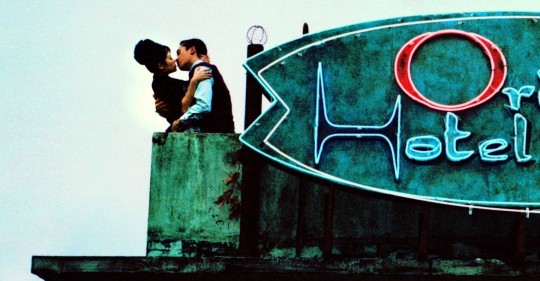
For Chow the separation of a former lover creates an innumerable pain that clouds him into missing the connections of his present life. Chow can barely even recognize the people he is talking too and the creative camera-work by cinematographer Christopher Doyle matches this aesthetic. Roger Ebert notes, “All of these relationships are seen in carefully composed shots that seem to be remembering the characters more than seeing them. One spectacular shot shows Jing from above and behind, smoking a cigarette and listening to an opera. Its composition is really the subject of the shot.” I think this is an apt way of discussing how the camera focuses on Chow’s subjective experience of the world and how a lost love has deluded him into not processing other people as they are. In almost direct contrast to the reading at hand, Chow and Wong Kar-wai are effectively at odds with Freud’s ideas of sublimation as written by Gerasimos Santas. Santas explains sublimation as Freud’s understand of a widespread pattern of behavior in which an early harmful experience gives rise to precisely its opposite. Yet in 2046 time and space collapse in memory, in fact, memory collapses in memory. The trials of the present are projected onto the future and the past, as 2046 is a spectacular act of self-interrogation. Chow is stuck in his own memory, unwilling to evolve and see others at face value. Furthermore, Wong Kar-wai focuses heavily on Chow’s face filling the frame with almost entirely medium-to-close range shots, distilling a certain fatalistic and resigned appearance. Yet while Chow is in constant conversation with possible lovers, it is almost as if he is never seeing them eye-to-eye and Wong brilliantly translates this cinematically with the constant eyeline mismatching. Elegiac and mournful in tone, the film displays Chow’s emotional reaction to heartbreak and how he is unable to progress over time.
1 note
·
View note
Text
Love is Courage
Rory Tell
Professor Ward – Love and Film
Love is… on the one side practical, on the other, it’s magical
I am deeply intrigued with the idea of how space interacts with love. I have always thought about how love and space have progressed throughout the technological advancements of time. If you came over to America on the Mayflower, then you were basically forced to find a lover from that specific small group of people. Yet, in today’s world if I so choose, I can talk to people and share romantic connections with about anyone I want, or can I? Love, just like any other construct, has to a certain sense been democratized with the rise of the Internet. However, are we not just really prisoners to the places that we live in a certain time? Is that even a bad thing? These are questions that I have asked myself for a while. As a history major at Johns Hopkins, a lot of my personal studies have dealt with cultural history. Specifically, I have looked at the ideas of the public sphere, cosmopolitanism, and, more generally, how people move about in cities. In fact, just this year, I have been lucky enough to work in New York for a good amount of time, which has amplified my increasing alertness to this area of study. Constantly when I am walking around on my lunch break, or taking the subway to and from work, I wonder what exactly everyone is doing. I wonder where everyone is going. In essence, I am regularly trying to understand why certain people move through space, and how interactions of romantic nature take place within such a space.
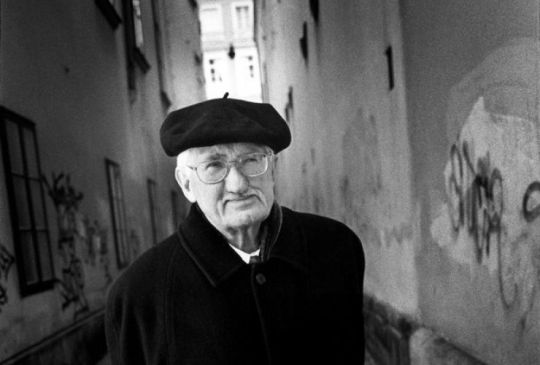
It makes sense that I have always been intrigued with this notion of love in space, as I have always been intrigued by the historical approaches of cultural historians such as Jurgen Habermas and Miles Ogborn. In specific, one of Habermas’s main theories gives us great insight into both of the readings for this week, “Love at First Sight: The Velocity of Victorian Heterosexuality,” by Christopher Matthews, and the poems of Charles Baudelaire. Habermas in his studies discusses the cultural importance that rests in the theory of the public sphere coming into vogue. Habermas seeks to comprehend in the expanding possibilities of everyday individualized action, how people operate within socio-cultural forms of life. For Matthews, in discussing the idea of love in railways, he is inherently wrestling with the ideas of an increasing public sphere in Victorian England. The advancement of the railway system was a crucial piece of technology that advanced the Victorian principles of liberal cultural reform and efficiency in communication. More importantly though, as Matthews discusses, the railways led to an increased involvement with strangers, and therefore, led to the creation of this idea known as love at first sight. As Matthews himself admits, highlighting Habermas’s theory of the cultural impact of the public sphere: “They also operate as figures for one another, the railway providing exactly those circumstances that allow love at first sight to function, and love at first sight offering a lens through which to explore the railway's transformation of time, space, and emotion. The railway might even be considered a material prerequisite of Victorian love at first sight, producing the social and technological conditions of unplanned meeting and exhibitions of spontaneous emotion.” Central to the Victorian fascination with love at first sight, and the romantic ideal, was the way in which railways acted as a conduit to transform Victorians notions of time and space.
Regardless if one believes in the idea of love at first sight, there is something magical transpiring. While a connection between people as the means of reproduction is at the core of human purpose, the act of having a connection with someone from the first moment is romantic idealism at its finest. Victorian subjects would write and draw about this throughout the century. Furthermore, why shouldn’t we believe in the magic of love in general? Life is full of coincidences and chance occasions, and you never know what lies next. Yet, I too recognize that as humans, we love to mythologize and create fantasies within our head. Love at first sight is no different a concept, as it is built from the same idea of mythology. This is where Baudelaire provides fascinating insight to contemporary ideas about space and love. Baudelaire saw people within a city as having a constant fleeting, ephemeral experience of life, and he put it upon himself to capture such experiences. Baudelaire understood the essential human dynamic in that all of us want our own little fairytale, and if love is truly magical shouldn’t its origins match that sense of enchantment, or should that experience be a fleeting memory? The same idea rings true for courtship stories that are born out of mythologizing the creation of a special bond.
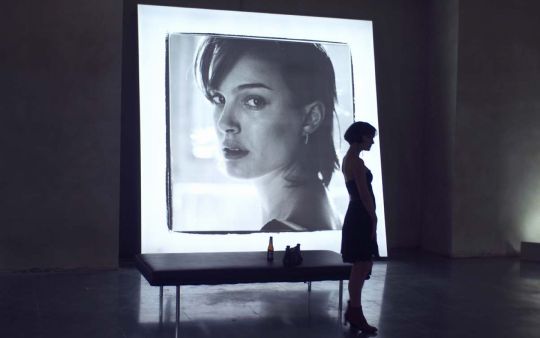
Yet, to some, this very love is also dangerous, and Mike Nichols seems interested in exploring the dangers of love and space. One could posit the notion of do we love someone because of the image we create in our mind, or do we truly want to get to know a person’s good and bad? When first looking at Closer I think I was dismayed about the lack of sincerity any character had for one another. Yet, on a re-watch, I think I myself missed a vital point, of whether any of these characters love each other at all, regardless of how great they are at saying that they are in love. While his characters are defined by their callousness and their egos, their real problem is their inability to accept the fact that besides being proximate to one another, the pairs share little in common. The only common theme in any of them is how they enjoy corrupting one another by continually being untrustworthy. In this way, I actually believe Nichols posits a fascination notion about revealing the hollowness and transience of human relations that are solely based on the idea of first love and spacial proximity. As Christopher Orr aptly stated in his review on The Atlantic, “At Anna's photography opening, Alice describes the pictures as a lie ... a bunch of sad strangers photographed beautifully.” Closer is that, as these characters do not even take the time to truly get to know each other. Love is about more than just where one is at a certain space and time. To Nichols’s credit, it seems as if he hits is own thesis on the head at the end of the movie, showing the lack of knowledge all these characters have about each other as Dan (Jude Law) finally realizes that Alice (Natalie Portman) made up her own name.
0 notes
Text
Love is Courage
Rory Tell
Professor Ward – Love and Film
Love is… a long road trip and you do not always get to choose your fellow passengers
Love is the foundation of my family. I very much love my parents, my brother, and my two sisters. It is weird to say that in a way, as it is not really a Western idea for people to say that they have “love” for anyone who is not a romantic partner. Yet, I could not think of a better word to describe the relationship between my family and me. As Nietzsche said, “Being a family means you are a part of something very wonderful. It means you will love and be loved for the rest of your life.” For me, family is by far the most important thing in my life. As the youngest of four siblings, I have only known what it is like to have a caring and close-knit family. I recognize now how actually lucky I am, and how the values of a strong family have been passed down from generation to generation. When you are growing up, your whole worldview is comprised of that which is right in front of you. For me, that was a strong family connection with parents and grandparents who were all in long and happy marriages. So, when I was young, I just assumed every kid had the same fun loving, stable childhood that I enjoyed. It was not until I went to camp, and started talking with my friends, that the reality set in that there were other family dynamics that I was totally unaware existed. The word “divorce” was simply not in my vocabulary at a young age. Unfortunately, a lot of my friends grew up with divorced parents, and they had tough and tumultuous childhoods.
It is interesting, because now, in retrospect, I, like so many others, often did not take the time to appreciate the love of my family members. I think that was true more so because I thought reciprocated love was the norm, and I knew no other way. In a society where love seems to be fleeting and conditional, it is your family members who are the only ones who are always there for you. My positive familial structure is so engrained in me that sometimes, and of course it is not on purpose, I take it for granted. Like many, I just forget to stop and think how I am treating my family members. I actually had this odd, self-reflective experience just last month. It was a beautiful August summer day and my dad, my brother, and I were all on the golf course for an early round. I was playing well that day (thank goodness my driver was going long and straight) so I was in a great mood. On the sixth hole, each of us hit a good drive, and we were all in the fairway for our second shot. My brother went first, and he hit a great one. I went next and hit a beautiful shot as well. When my dad got up to swing, he hit the ball fat and it really did not go very far. Now dads are complicated figures. For any young boy, your father is an almost mythological being. It is truly tough to see them as anything less than being your dad, and what that entails. But when he missed that shot, the weirdest thing happened to me. I just felt terrible. In that moment, I just wanted him to hit a good shot, very much like a parent who wants to see his own child succeed. With that thought, I realized for the first time, he wasn’t just my dad, but he was his own person. I walked away with a greater clarity about love, and about being a parent and family member. True love is about seeing the world from a different perspective, and that’s what loving family members do for each other.

Alain Badiou, in his seminal text, In Praise of Love, is interested in examining the philosophy of love as it has evolved in the 21st Century. One of his most interesting revelations is the idea of love taking on a temporal dimension. For Badiou, love not only focuses on the encounter between people, but also the process of how that love is shaped over time: “Real love is one that triumphs lastingly, sometimes painfully, over the hurdles erected by time, space and the world.” For Badiou, love is a magnificent quest that compels us to explore otherness and differences, ultimately leading us away from an obsession with the self. This is a crucial function in Badiou’s work and something I learned that day with my dad.

It is clear to me how in Paris, Texas (1984), a film that is about the mythologizing of America, Wenders is playing to the values I espoused in my prior story by mythologizing the somber and uplifting moments inside the classical familial structure. Having the ability to see Paris, Texas on the big screen (thanks Dr. Ward for telling me to go) is a must for everyone. Viewing Wenders’ landscape portraits of the American southwest, while being lulled into the cinematic expanse with Ry Cooder’s famous soundtrack, provided me with one of the best in theatre experiences of my life. A.A Dowd, one of my favorite critics, reinforces this idea in his review of the film, noting that, “The title [Paris, Texas] turns out to be dually appropriate: It conveys not only the application of a European sensibility to an American milieu, but also how unattainable Wenders’ idealized nation is.” To love Paris, Texas, one must not be worn down by the minutiae of specific plot decisions, as Wenders is much more interested in “privileging iconography over psychology,” mythologizing over truth telling. The moment that resonates with me the most is when Travis absorbs the painfully beautiful memories of himself, his wife, and his child while looking through old Super 8 movies. His vulnerability is on full display for the first time, as he starts to reconnect with the love he has for his family. When I saw this scene, I immediately started crying and I was not surprised. I find it very difficult to look at old photos of myself realizing how much I have changed in the process of my life. And as Badiou writes, not only have I changed physically, but my thoughts on love and other intangible ideas has changed along side of me. For Travis, not only is he seeing the memories of his life again, but he is also realizing what it was like to have that love compared to the state he finds himself in now. As humans we are constantly evolving with time, and the ideas we hold most valuable must change alongside ourselves. I felt, as if in that moment, I was Travis, looking at old memories of myself, and the love I have for my family. Now there is a legitimate gripe to have with Wenders’ notion of the importance of the genetic mom. Yet, call me a born romantic, or maybe it is from the family love that I have experienced, but I definitely connect with Wenders’ mythologizing of the family unit, and the immense love and connection that forms between different members over time.
0 notes
Text
Love is Courage
Rory Tell
Professor Ward – Love and Film
Love is…Complicated
Is there any concept humans have to deal with on a daily basis that is more complicated than that of love? I can just hear Avril Lavigne’s “Complicated” echoing out of my iPod right now as I write this blog. “Complicated” to a large extent actually mirrors a lot of my teenage emotions towards the idea of love and connecting with someone. It captures the multitude of feelings that engross a young teenager’s mind, that of confusion, anxiety, desire, and affection. As one music critic aptly noted her song represented, “a moment in time where you’re childlike enough to beg for a simple explanation for everything and just mature enough to know there’s no such thing.” She aptly brings up the idea of love as an intangible idea. Humans tend to ascribe definitions to things as to show an understanding of what those very things are. However, so much of how we feel can sometimes never truly be expressed, as there are not words that can define these intangible experiences such as love. So why do we even talk about love anyway? Love is not simple, and that is okay. In fact, I think the process of one attempting to understand love is a vital ongoing process that is never fully realized. Rather, at different points in our lives, humans become privy to its many shapes and forms. That is why love is so beautiful, because when one finds that connection, there is an almost unspeakable bond that is created. Furthermore, we are doing an injustice to society if we do not seek to discover what is unknown about ourselves. Love is one of those things, and that is why I am writing these blog posts, to hopefully come to an infinitesimal better understanding than before I started.
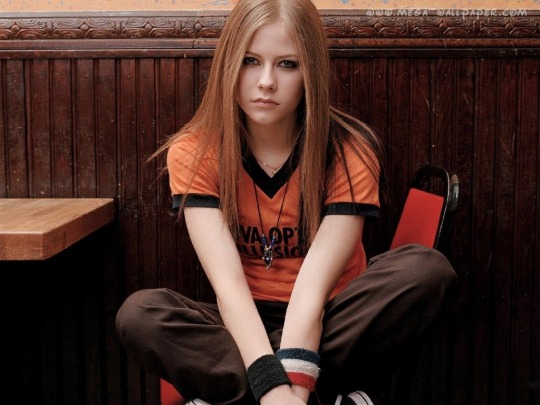
From the outset of society, understanding and dissecting the origin and idea of love has played a key role in every culture. The Greeks, of whom we will discuss in much more detail later in the blog, had many words to describe the feeling of love. Eros represented sexual passion, philia denoted deep friendship, ludus described a more playful love, agape symbolized a love for everyone, pragma signified a longstanding love between couples, and philautia was used to describe the love for oneself. These are just some of the terms Greeks used to encompass their feelings towards one another. There is no doubt that as society has progressed; the concept of love has too, as we have become more accepting of different forms and constructs of love. But why from ancient Greece to now are societies and humans still wrestling with the idea of love and what it represents to different people. This is a question I grapple with all the time. As I mentioned prior, I think the short and the long of it is that love means different things to different people at different points in their life. There is no blanket statement, no definition in a textbook that can encompass or articulate the full range of emotions a human feels at a point in time. As much as humans tend to want to create unifying theories for specific ideas, love is subjective and changes depending on the person. Yet, love doesn’t only change depending on the person, but in fact, as we will see later on in the semester, time is a crucial element in how love evolves inside a person. The childish love we feel in sixth grade changes when someone gets married, and it continues to change as people age.
When looking at Hedwig and the Angry Inch (2007) and Plato’s Symposium, we can view how these two different texts are responding to the idea of love. From the outset Hedwig is an extremely complicated figure. Hedwig is born, male, acts with a female persona, yet lives in between genders. Thus, pinning down what Hedwig is and wants becomes increasingly complicated throughout the course of the movie. As Yitzhak, another member of the band, says during one of the band’s opening songs, “Hedwig is like that wall/Standing before you in the divide/Between East and West/Slavery and freedom/Man and woman/Top and bottom.” This idea, of opposition, the dialectic between Hedwig’s understanding of himself as not fully formed, but only a half of a whole person is the central narrative of the film. And to me, I believe it to be an extremely narrow and dangerous way of looking at love. The idea of the other half, that there is only one person who can make you feel whole is not a healthy way of viewing relationships and love in general. For much of the film, Hedwig is preoccupied with finding his soulmate, his other half as he describes it in their rendition of the “Origin of Love.”

Aristophanes speech in the Symposium thus becomes the clear metaphor symbolizing what Hedwig’s beliefs on love is at the beginning of the film. Yet, while Aristophanes assessment foregrounds the narrative and Hedwig’s initial beliefs on love, the film continues to engage with other various parts of the Symposium’s work. The film’s narrative demonstrates a more serious engagement with the Symposium’s speeches. Throughout the film, failed relationships compel Hedwig to abandon external completion of the whole for inward self-discovery and ultimate self-acceptance. This evolution in Hedwig’s mindset can be directly correlated to the evolution of the dialogue happening within the Symposium as Socrates attempts to build on his fellow friend’s ideas while putting forth his own methodology. “Like Aristophanes, Socrates argues that love is the desire for what one lacks. But in contrast to Aristophanes, who thinks the lack is the other half, Socrates conceives it as the lack of the knowledge of ‘the form of Beauty’, or as the lack of ‘immortality.’” Thus, Hedwig begins to understand that the only thing that can make himself feel complete is the love and happiness he seeks within himself. Love is an extremely complicated journey for Hedwig, but it is ultimately a rewarding path as Hedwig begins to appreciate the fact that one has to love himself to love others.
1 note
·
View note